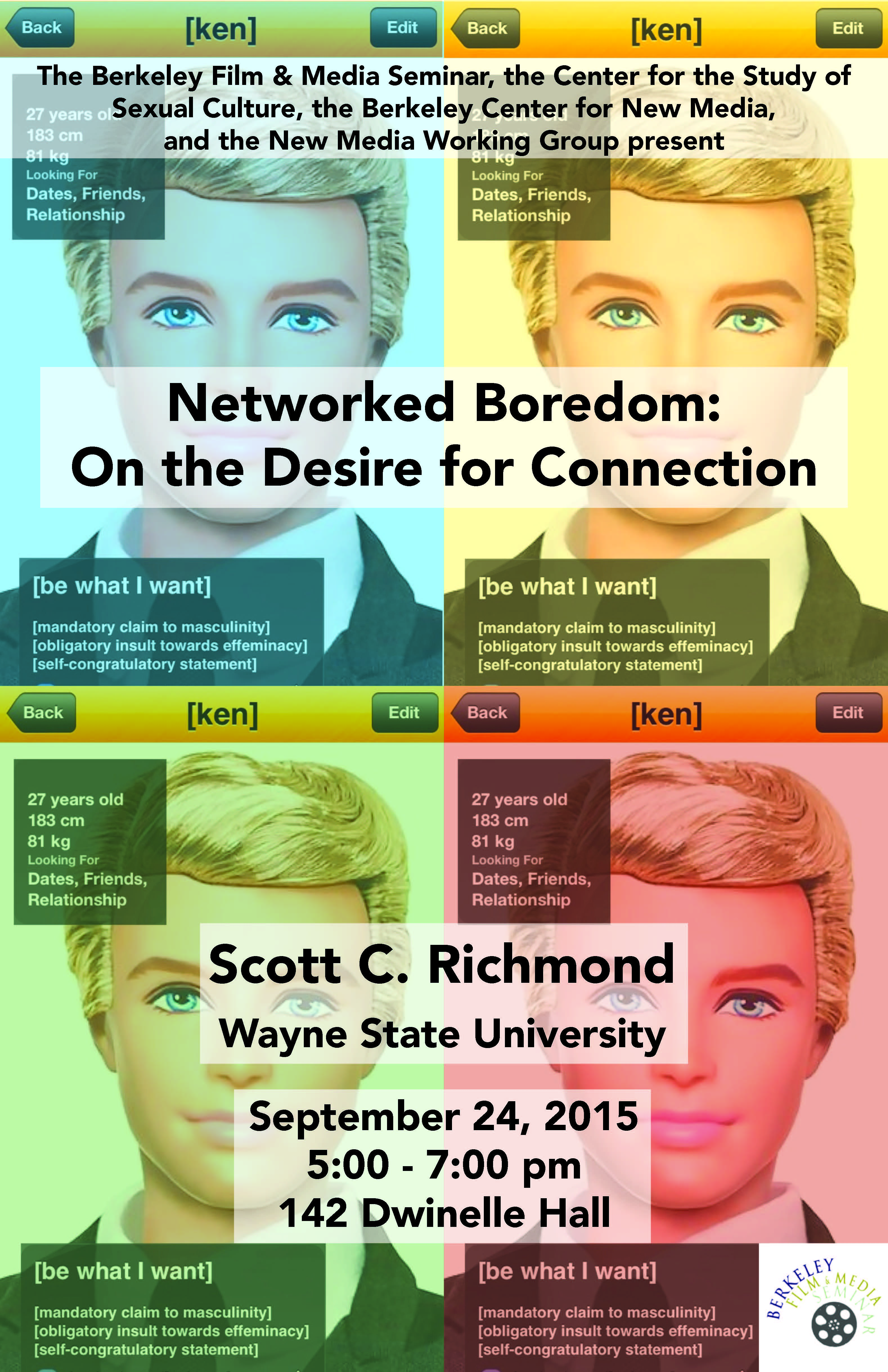This talk addresses the ordinariness of a basic fact of much contemporary life: the compulsory (if not compulsive), ubiquitous, and permanent availability of and on the network. My central case is a set of social practices practices in and around gay hookup or sex sites and apps, most especially Grindr. Taking a phenomenological approach and thinking with, by turns, film theory, media theory, affect theory, queer theory, and psychoanalytical object relations theory, I describe the common practices of “looking around” and waiting for messages from unspecified others. Grindr and its relatives are paradigmatic not only because they offer interfaces to the Internet as an infrastructural network, but also offer “connection” as an organizing metaphor for sexual (or polymorphously other) encounters between men. These networks specify genres of both the abstractness of boredom and the impersonality of desire—as enabling conditions for connection, but also as forms of mitigating the risk and exposure that are endemic to encounter and desire. Such risk management—anonymity, impersonality—is nothing new to gay or MSM sexual practices and cultures. The novelty here lies in the details: the technical interface and its design, the temporality of always-on availability, and the abstracted elsewhere-embodiment of the terminal. Grindr dramatizes that, increasingly, the impersonality of desire is yoked to the impersonality of technical protocol. Its abstracted and networked waiting-for-connection indexes a shift both in our capacity for aloneness and our capacity for being-with-others. The network engenders novel forms of boredom, in which our desire is organized not by anything in particular, but rather the network’s own metaphor for encountering, mere “connection.”

